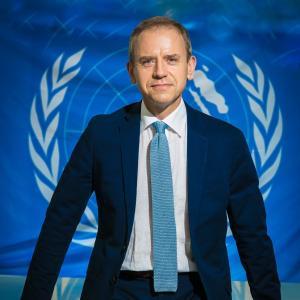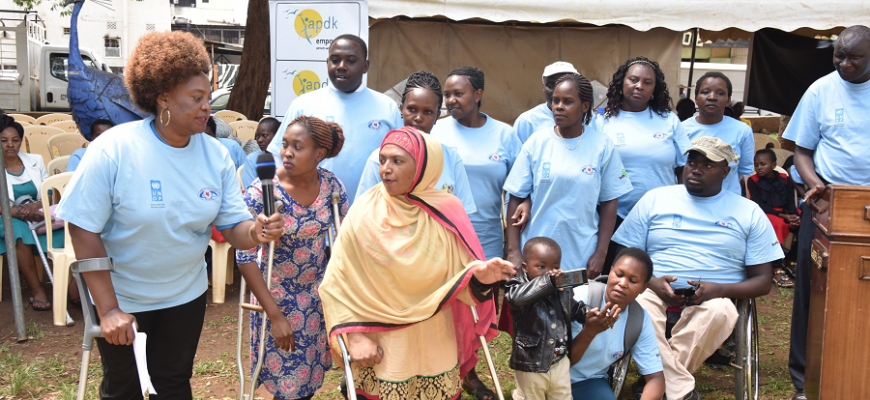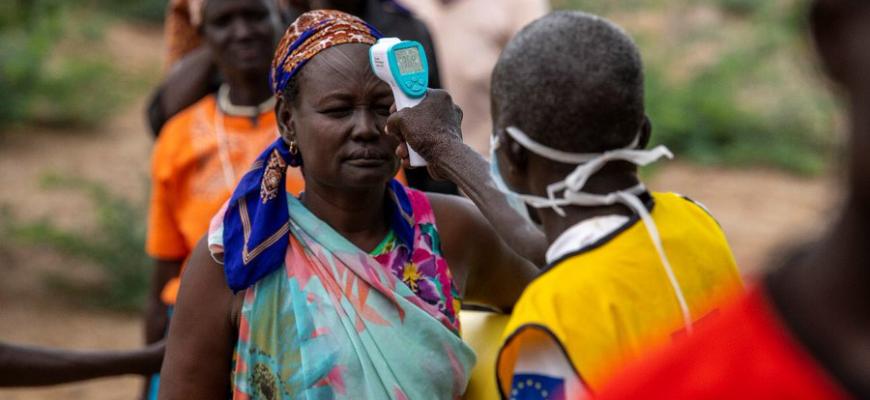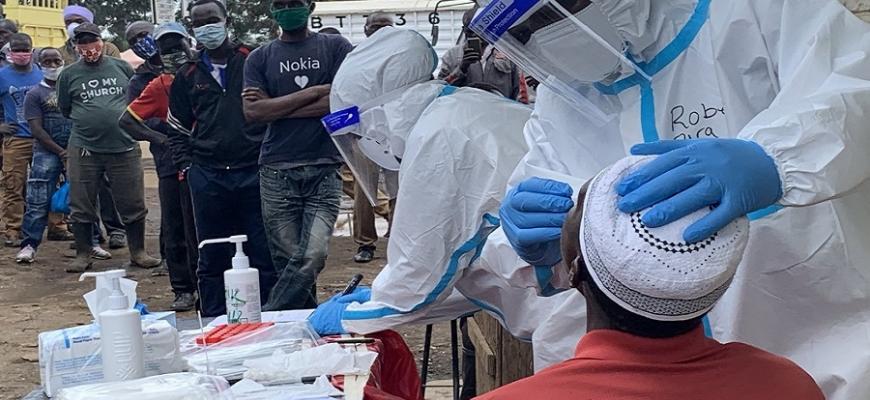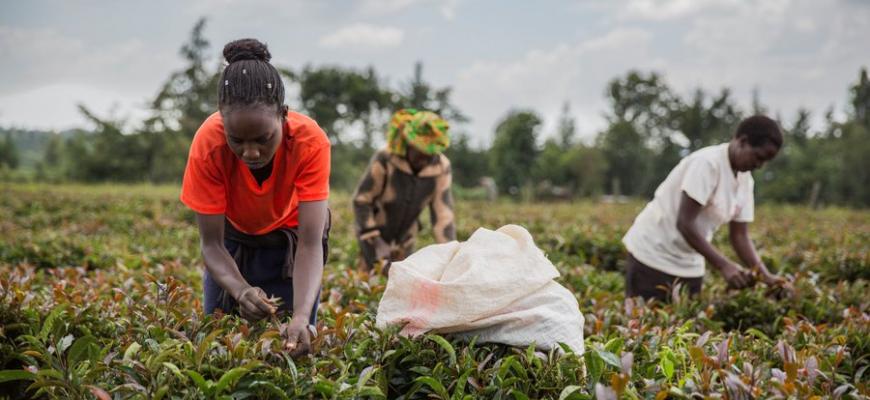- عربي
- 中文
- English
- Français
- Русский
- Español
UN Resident Coordinator in Kenya
Stephen Jackson
United Nations Secretary-General António Guterres appointed Stephen Jackson of Ireland as the United Nations Resident Coordinator in Kenya, with the host Government’s approval.
Mr. Jackson brings close to 30 years of experience in international development, peacebuilding and humanitarian affairs to the position, including more than 10 years in Sub-Saharan Africa. At the United Nations, he most recently served as Resident Coordinator in Gabon, after holding leadership positions at the Department of Political Affairs (DPA) and with United Nations Peacekeeping. In DPA, he served as Chief of Policy Planning and Guidance, headed the Secretariat to the High-Level Review of United Nations Peacebuilding in 2015, worked as Team Leader of the Mediation Support Unit, was Chief of Staff of the United Nations Office in Burundi (BNUB), led the Policy Planning Unit as well as the Africa Great Lakes Team, and worked as Special Adviser to the Special Envoy of the Secretary-General for the Great Lakes. With Peacekeeping, he served as a Senior Political Adviser with the United Nations Organization Mission in the Democratic Republic of the Congo (MONUC).
Prior to joining the Organization, Mr. Jackson was the Deputy Director of the Conflict Prevention and Peace Forum (CPPF) at the Social Science Research Council (SSRC) in New York and served as the Director of the International Famine Centre and a Lecturer in Sociology at the National University of Ireland in Cork after working in humanitarian relief and development in Angola, Rwanda and Somalia.
He holds a doctorate in cultural anthropology and a master’s degree in public affairs from Princeton University, USA, as well as a bachelor’s degree in mathematics from Trinity College in Dublin, Ireland.
Resident Coordinator's Office
The Resident Coordinator’s Office supports the work of the UN Resident Coordinator and coordinates activities of the UN Country Team in its engagement with the Government as defined by the UN Development Assistance Framework (UNDAF).
Kenya is currently implementing UNDAF 2018 – 2022, which is the medium-term results framework that describes the response of the UN system to national development priorities. UNDAF describes how the UN country team will contribute to the achievement of development results based on a common country analysis and the UN comparative advantage.
The Resident Coordinator is leading and strategically positioning the United Nations country team in Kenya to respond to the current national priorities, mainly to Kenya’s Vision 2030, Medium-Term Plan III and the Big Four Agenda. The Office has five core functions:
- Strategic Planning
- Economics
- Partnerships and development finance
- Data and results management and reporting
- Communications and advocacy
United Nations Development Assistance Framework (UNDAF)
The Kenya United Nations Development Assistance Framework (UNDAF) 2018-2022 articulates commitment of the United Nations (UN) to support the people of Kenya realize their development agenda. This UNDAF has been developed in collaboration with the Government of Kenya as the host and key implementing partner among other stakeholders ensuring ownership, and alignment to national and county development priorities. The UNDAF is anchored on the countries blue print for development, the Vision 2030 and national priorities as outlined in the the Medium-Term Plan III, “Big Four Agenda” and the Sustainable Development Goals (SDGs).
This UNDAF has three Strategic Priority Areas that are aligned to the three MTP III Pillars (Political, Social and Economic) of the Government’s Vision 2030 :
- Transformational Governance encompassing respect for the rule of law, improved security, and effective implementation of devolution,
- Human capital development comprised of education ,training and learning, health, Multi-sectoral HIV and AIDS response, access to safe water and sanitation, social protection, gender based violence and violence against children, access to adequate housing and strengthening capacities for addressing disaster and emergencies
- Sustainable and inclusive growth focusing on a competitive and sustainable economic growth that is increasingly resilient, green, inclusive, equitable, and creating decent jobs and quality livelihoods for all. The outcomes will support the Government to accelerate the economic transformation of Kenya contributing to an empowered, productive, and healthy nation.


